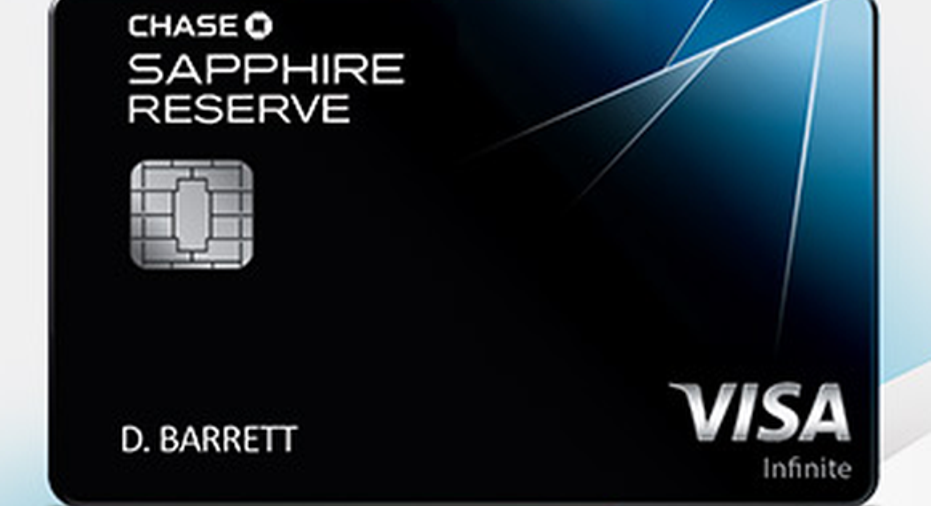The Chase Sapphire Reserve Card: Why Is It So Ridiculously Popular?

Want the new Chase Sapphire Reserve Card? You'll have to wait in line. Image source: iStock/Thinkstock.
The new travel rewards credit card offered by JPMorgan Chase (NYSE: JPM) -- the Chase Sapphire Reserve Card -- is so popular that demand for the cards far outstripped the bank's supply of them shortly after the bank started issuing them.
"I have never seen such interest in a credit card, and I've been doing this for 15 years," travel blogger Gary Leff told the Associated Press.
Chase Sapphire Reserve Card: a metallic card for the masses
The Chase Sapphire Reserve isn't your typical travel rewards card, and the difference is apparent as soon as you hold one.
As opposed to the usual credit card, which is made of plastic, Chase's new card is handcrafted out of a metallic alloy that "gives it a satisfying heft and an impressive thunk when you toss it onto the table to pick up the check," says the Associated Press.
This is why JPMorgan Chase ran out of the card almost immediately after it was launched. Unlike plastic, which is available in limitless quantities, the metallic alloy used in the Chase Sapphire Reserve card was in much shorter supply.
Image source: JPMorgan Chase.
For the record, the card's popularity has nothing to do with aggressive marketing. Just the opposite is true, in fact, as Chase hasn't spent a dime publicizing it. It's instead a cult hit, which spread by word of mouth.
The prestige that comes with a metallic card is one of the card's main appeals. That puts it in league with the likes of American Express' Black Card.
The difference between the Chase Sapphire Reserve card and American Express' Black Card is that you don't have to be a millionaire or a celebrity to qualify for one. This has made it especially popular among millennials, a generation that's otherwise shunned the credit card industry.
A hefty annual fee
But the card doesn't come cheap. It has an annual fee of $450. That's eight times more than the $55 annual fee that I pay for my Costco Anywhere Visa, which offers a slate of generous rewards and doubles as my yearly fee to access the membership warehouse.
Another reason JPMorgan Chase's latest credit card offering is so popular is because it comes with what must be the single most lucrative sign-up bonus of any card on the market now. So long as you spend $4,000 on your card in the first three months after opening the account, you get 100,000 points that can be redeemed for travel. That equates to approximately $1,500 worth of travel rewards.
Beyond the sign-up bonus, moreover, the Chase Sapphire Reserve Card provides a major recurring benefit. It comes with a $300 annual credit that can be used toward travel. Assuming you redeem the credit, then, this effectively drops your annual fee to $150.
The sign-up bonus alone has people clamoring to get a card. It's become such a hit among those who regularly apply for rewards cards in order to accrue bonus points, that Chase is purportedly disqualifying applicants who have opened five or more bank cards in the past 24 months.
The net result is that, while the Chase Sapphire Reserve Card may be less selective than the American Express Black Card, it's not like just anyone can get one. But for those who do, and who travel a lot as well, it's easy to see why JPMorgan's Chase's latest credit card offering has been such a hit.
A secret billion-dollar stock opportunity The world's biggest tech company forgot to show you something, but a few Wall Street analysts and the Fool didn't miss a beat: There's a small company that's powering their brand-new gadgets and the coming revolution in technology. And we think its stock price has nearly unlimited room to run for early in-the-know investors! To be one of them, just click here.
John Maxfield has no position in any stocks mentioned. The Motley Fool recommends American Express. Try any of our Foolish newsletter services free for 30 days. We Fools may not all hold the same opinions, but we all believe that considering a diverse range of insights makes us better investors. The Motley Fool has a disclosure policy.



















